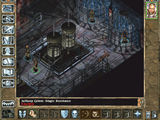| |
Site Navigation
Main
News
Forums
Games
Games Database
Top 100
Release List
Support Files
Features
Reviews
Previews
Interviews
Editorials
Diaries
Misc
Download
Gallery
Music
Screenshots
Videos
Miscellaneous
Staff Members
Privacy Statement
|
|
We were a little slow getting the poll going last week but the results show most readers take some interest in indie RPGs. 18% are always playing indie games, while around 66% combined are occasional players or have experimented with one or two. Only 15% have no interest in indie games - or at least while the graphics aren't cutting edge. On to this week.
 | | I want my party! |
I’ve travelled Britannia with Dupre and Shamino, survived the wastelands with Dogmeat by my side and smirked while Jaheira succumbed to overwhelming odds…I never liked that superior attitude of hers. My trusty band has battled the wilds of Dominus to defeat the Dark Savant, I have wandered the outer planes with a talking skull and I’ve yelled colourful curses at Marcus’ awful aim with that damn mini-gun…but it was so much fun I just couldn’t take it off him.
So many of my favourite RPGs have been party-based. Sure, they come in different shapes and sizes, from creating a large team in one of the Wizardrys to recruiting a handful of followers in Fallout but there’s something about having companions joining your adventures that I have always enjoyed. In addition, there’s the strategy layer that balancing a party adds to many of these games. I’m sure I’m not the only player to have spent hours juggling the manual and an Excel spreadsheet in search of that perfect Wizardry 8 party.
The historic and evolutionary link between wargaming, PnP roleplaying and cRPGs is obvious, so it’s no surprise that so many classic cRPGs have been party-based. So why are they now an endangered species?
Obsidian’s Neverwinter Nights 2 (based on reports of up to three followers) and BioWare’s Dragon Age are the only party-based cRPGs that I can think of in development in North America. There’s The Fall, Metalheart and no doubt a handful of others from Europe...but parties have been pretty thin on the ground since the Baldur’s Gate series ended.
My guess is a rise in action-RPGs, where the dynamic of managing a party is at odds with keeping the action flowing, perhaps reinforced by the desire (need?) to keep pace with the graphics war waged daily by shooters, which renders isometric views increasingly quaint to many. While “party” and “isometric” don’t go hand-in-hand, it’s one more factor. Some players would point to a single character as offering a better roleplaying focus (which I would broadly accept) but I doubt that sentiment drives developers and publishers.
At the end of the day, it’s all about sales, of course. We’ve seen an obvious rush to create the next Diablo…but there has also been a conspicuous failure to achieve this stature, unless we look at the multiplayer market and titles like Guild Wars. In the meantime, the last classic fantasy party-based series – Baldur’s Gate – has notched up sales of 5 million copies. It’s hard to understand why no one wants to capitalise on this seemingly obvious desire for epic, story-rich, party cRPGs.
Have a theory on where party RPGs went? Think its part of the general slowness in the cRPG market? Too busy anticipating Oblivion or Gothic 3 to care? Who needs that micro-management anyway? Hit the poll on the left and then we’d love to hear what you think. |
|
|





 Side Quest: Hey! Where did my party go?
Side Quest: Hey! Where did my party go?
